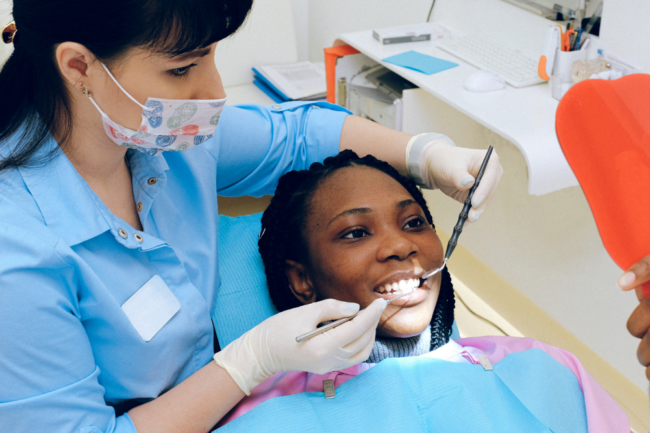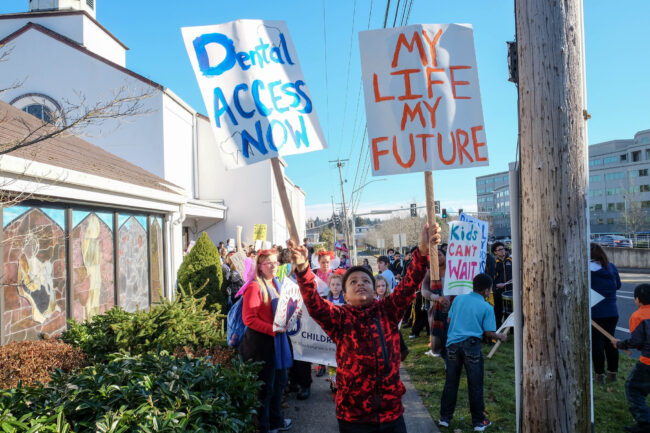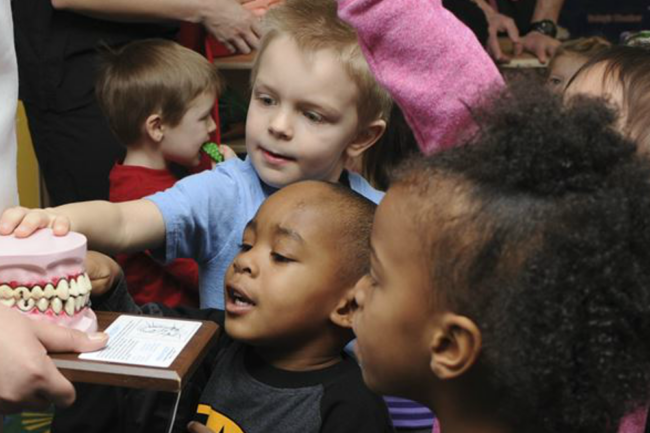Oral Health
Health AccessWe work with community partners to bring quality and affordable oral health care to more people by addressing inequitable access and other barriers to care.
Oral health, or healthy teeth and gums, is a big part of personal health — with physical, social, and emotional impacts.
Think of the friend or colleague who refuses to smile with their teeth showing, and the emotional toll that must take on them. But oral health also has an enormous financial impacts. Dental care in the U.S. presents the highest financial burden of any health care service, and poor oral health can negatively affect employment and earnings.
Despite the importance of oral health, millions of people in the US lack access to preventive programs, dental insurance, and dental care.
Medicaid and Medicare, which more than 100 million people rely on for health insurance, are not required to offer dental benefits.
Affordable and accessible oral health care has historically been and remains out of reach for many systemically excluded communities, including Black people, Hispanic people, people with low incomes, rural communities, Tribal communities, and people with disabilities. In fact, more than 60 million people in the U.S. live in areas with few, if any, dental care providers, let alone providers who represent their race, language, or culture.
60 million people in the US live in areas with few, if any, dental care providers
For decades, Community Catalyst has worked with community partners to bring quality and affordable oral health care to more people by addressing inequitable access and other barriers to care. Through our Dental Access Project, we are advancing state and federal policies to expand access to comprehensive and affordable dental coverage across public and private insurance programs. Our efforts also include advocating for the training and deployment of community-based and representative oral health provider models, like dental therapists, to bring oral health care to communities that historically lack access.



